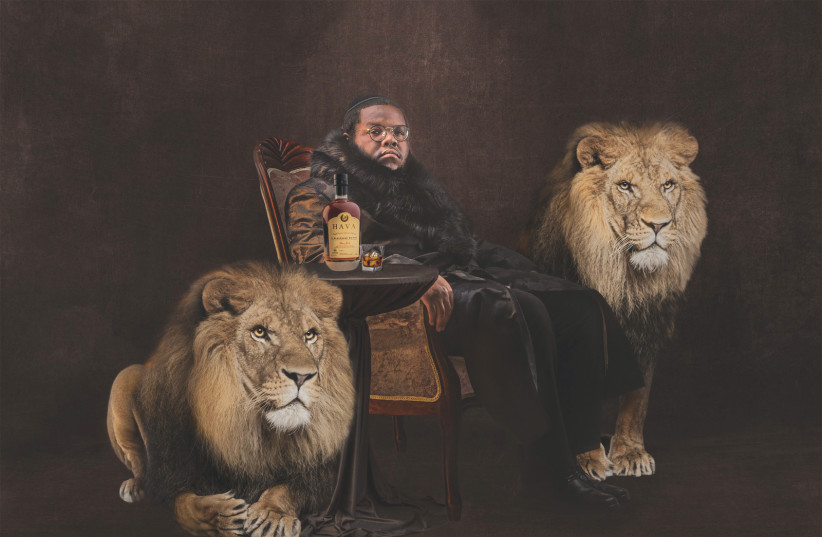
Nissim Black is a legend. Born in Seattle, the rapper converted to Judaism, made aliyah, and found himself living in some of the country’s most religious neighborhoods with his wife and children.
Now this Jerusalem district resident, with several albums to his name, has been working to use his sizable platform and talent as a performer to help uplift people during Israel’s darkest hour.
What was it like living in Jerusalem?
My first time in Israel, I stayed in Katamon. I davened [prayed] at the Shtiblach synagogue every day.
[After making aliyah] I used to live in Rehavia, and then I moved to Mea She’arim for two and a half years. Now I live in Beit Shemesh, and I wouldn’t trade it for anything. I did my bit in Jerusalem, got it out of my system, the whole Jerusalem bug. I feel so much more connected to the land over here. There’s something about being able to be in the forests, with the trees. And the places over here are breathtaking.
What was your Oct. 7 experience?
I heard air raid sirens the first time when I was getting ready to go [to synagogue]. We went to shul, and there were sirens six or seven times. But what was different this time was that we could hear the impact, and we could see the Iron Dome [in action].

Then we heard about the South. It was a very worrisome time.
What have you been doing since then?
We’ve all been doing different things, but I’ve been really trying to uplift people, online and in person. I’ve been to a couple of army bases already, I’ve seen wounded soldiers in the hospital, and do as much as I possibly can. There are a lot of soldiers who like my music. I feel like every day I’m sending another video to another soldier.
But we’re also being involved just like everybody else. We’re cooking food for soldiers, we donated, and raised money. We’ve done everything that the rest of the nation is doing.
There are already so many people I know who were called up. A lot of friends, too. But I’ve been very surprised how many people have taken on reserve duty, even from the haredi [ultra-Orthodox] world. This is unlike any other time I’ve ever seen.
I’ve put everything on the back burner. I was supposed to release an album in October, but we pushed that back, probably to March now.
What do you think of how other artists have taken stances amid the current war?
Ultimately, we all have our biases and things that influence us the most. We live in the information age, but that doesn’t always mean it’s true information.
People are always consuming and sharing talking points they hear elsewhere. They [often] aren’t in touch with themselves and hold opinions that don’t really belong to them.
It’s been very disturbing. For instance, Macklemore [a popular US rapper] is a good friend of mine, and after seeing him take the position he did, I came out against him on social media.
People are always looking to champion a cause, and a lot of artists are getting involved. Some actually take on the responsibility, say they have an obligation to say something because they have a platform. Others do it because they want to follow what’s popular. That kind of irks me.
You have to come with facts. I’ve been hearing things that are very emotionally driven and that are conspiracy theories. And I get that, because emotions are running high and there are unanswered questions, but you can’t make that the basis of your opinions.
It’s been very disturbing to see what’s been going on in the entertainment industry toward Israel right now.
What does it mean for you to perform in the middle of the Israel-Hamas war?
We really need more than ever for people to be uplifted and stay positive.
At the same time, it was very hard in the beginning to balance it. That’s why I didn’t release any songs. I also didn’t want to be advantageous; it would be a little disingenuous to give them a new Nissim Black song right now.
Since October 7, the thing for me is: How much can I give without receiving anything for it? And I’ve heard from so many people how I’ve been a resource for happiness and strength. So I’m taking this more seriously than I ever have.
We have soldiers on the front line, and we have people doing your work [hard-working journalism]. Mine is to speak. I’m giving more talks and lectures, and I’m performing.
Every one of us, in our own right, have to be giborim, heroes, right now. ■
